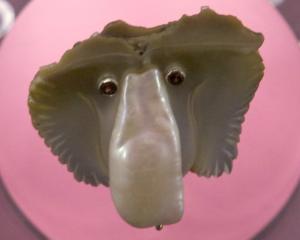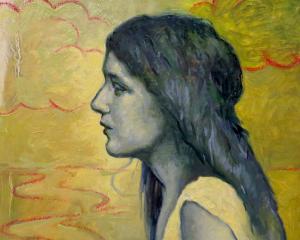To commemorate the centenary of Captain Scott's ill-fated journey to the South Pole, the Southern Sinfonia is presenting the world premiere of The Journey Home. Charmian Smith talks to composer Prof John Drummond.
Captain Robert Falcon Scott's last landfall in 1910 before sailing to the Antarctic was Port Chalmers, where there is a memorial, and the news of his team's death came ashore at Oamaru in 1913.
John Drummond has written an oratorio to mark the anniversaries.
The Southern Sinfonia will perform his The Journey Home on September 8.
The idea started when Prof Drummond received a text developed from Scott's journal by librettist and opera historian Jeremy Commons about four years ago. He suggested setting it for baritone and piano, but Prof Drummond thought a significant event like this might need something else.
He looked at poems about the Antarctic by New Zealand poets who had been there and found evocative works by Claire Beynon, Chris Orsman and Bill Manhire.
"I thought it would be nice to do this for a series of soloists - a baritone who could sing Scott's journal, a soprano and tenor who could do the poems.
Then I thought, let's have an orchestra. Then I thought if we are going to go that far, why don't we add a choir. Make it a proper cantata or oratorio." He planned to add texts from the Latin requiem mass, but Commons persuaded him Scott wasn't a Catholic so he found appropriate texts in the Anglican Book of Common Prayer.
"It finished up with quite a lot of text. Jeremy's text covered the whole of the expedition from the beginnings, but the more I looked at it, the more I felt the interesting part of the story was the last part, which happened 100 years ago this year," Prof Drummond says.
"When Scott realises he isn't the first to reach the South Pole but the second, because Amundsen had beaten him by five weeks or so, that must have been a very disappointing and traumatic moment for him. The journey home from the pole and the sense he hadn't achieved what he wanted to achieve. That became something I wanted to explore."
The Journey Home starts with Scott and his party's disappointment and the prospect of the journey ahead.
They think it will be a journey back to his base camp and then home to England, but as the weather grew worse and then he and his companions struggled, it became a journey to a different home, one we are all going to in the end, a journey to the home of death in the Antarctic, Prof Drummond says.
"I wanted to explore his feelings throughout that experience, but not make it a totally gloomy and tragic business, because I don't think it's necessarily like that. I think what those texts, the Common Prayer texts are trying to do, is to remind us there are things beyond life; there are things beyond this world and there is a spiritual dimension. I want to tap into that. I suppose what I'd like people to feel at the end is an awareness of the tragedy of it all, but I don't want everyone to end up weeping.
"The journey is about contact with things eternal, really, and I think that's one of the things music can do quite well because it can go beyond words and speak directly of other things to us."
Scott made mistakes in his planning for the expedition and the weather was unexpectedly bad, with blizzards and extremely low temperatures.
However, Prof Drummond suggests that another factor making the return impossible might have been Scott's state of mind, his disappointment at having not been the first to the pole.
"It's like getting the silver medal - yes, you are really pleased to have done it, but you had hoped to get the gold. Your state of mind is bound to be slightly different in those circumstances."
He particularly enjoyed setting the poems - there's a wonderful one by Bill Manhire, The Goddess Hypothermia.
"He's written it like the Goddess Hypothermia has come to embrace me. It's a very clever little poem because it's got this amorous flavour to it but nonetheless, underneath, you know it's something very dangerous. I love that poem and really enjoyed having the opportunity to set that."
A more difficult piece to set was the famous quotation by Captain Oates.
"Everyone knows he said 'I'm just going out and may be some time', and it's one of those lines people use in other circumstances, so trying to set that without it becoming funny just because of the associations was very interesting. I had to have quite a few goes at that. I hope it works in the context."
There's a poignant passage in Scott's journal, when he realises he won't see his son again, that Prof Drummond set as an aria for the baritone.
"Scott's son was Peter Scott, who was a great naturalist in the UK, and the song talks about how he hopes his son will grow up to love nature. Having met Peter Scott many years ago - he was a friend of my sister's - I felt it was a really nice poem to set because that is what did happen."
Prof Drummond says he writes music he wants people to enjoy listening to and musicians will enjoy performing, which means they will communicate well with the audience.
See it
John Drummond's The Journey Home will be given its premiere performance on September 8 at 8pm at the Regent Theatre by the Southern Sinfonia, conducted by Simon Over, with soprano Jenny Wollerman, tenor James Rodgers, baritone Robert Tucker and the City of Dunedin Choir. Also on the concert programme are Tchaikovsky's Capriccio Italien and Stravinsky's The Firebird Suite.












